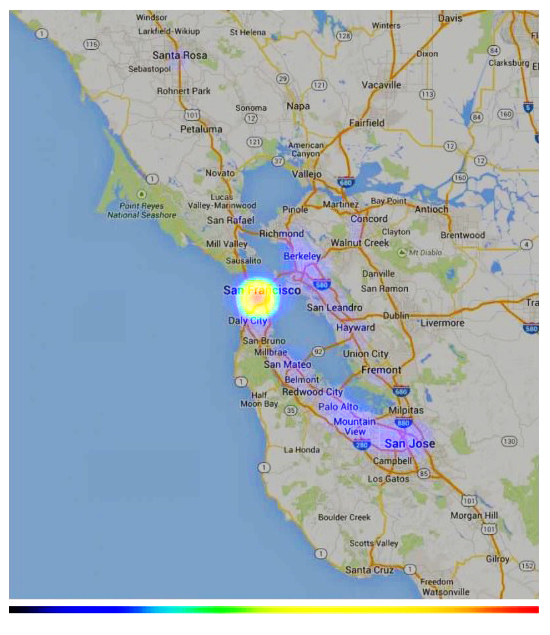He said it was a first to find that half of Bay Area residents support new housing construction, even if it increases the density of their cities. Support for new housing with greater density was higher in Santa Clara (56 percent), Alameda (55 percent) and San Francisco (53 percent) counties. An even larger majority -- 61 percent -- of San Franciscans said they'd accept new housing in their neighborhood.
"That’s a new phenomenon for us," Regan said. "People are saying things they’ve never said before about welcoming new development in their neighborhoods."
Thursday's release was a drill-down into housing-related responses and part of the Bay Area Council's yearly poll. Oakland-based EMC Research administered the online survey of 1,000 adults, all residents of the nine-county Bay Area. Respondents were fairly evenly represented across income levels, and most live in Santa Clara, Alameda and San Francisco counties.
The Bay Area Council also asked questions about reducing state and local regulations that could "hasten new housing," according to the group's press release. The poll noted growing support for reducing local building regulations and fees, and reforming state-level environmental impact regulations.
New support for increased density wasn't particularly surprising to Peter Cohen, who co-chairs the San Francisco Council of Community Housing Organizations.
"I’m not surprised at all that folks are interested in a more urbanistic environment, even in their own neighborhoods," he said. "I’m not surprised at all that people want low- and middle-income housing, but that does not mean the answer is to strip away regulation and let the free market run its course. That’s not what this is saying."
Cohen pointed out a question in the poll that asked whether people would support making it "easier to build housing while still maintaining environmental protections."
"That makes it seem like you can have your cake and eat it, too," he said. "How do you do that? There’s no answer. It just sounds good."
Regan said low- and middle-income housing -- far below San Francisco's market rates -- is a "doughnut hole" in the region's housing policy.
"There is funding for very low-income homes, and the market rate housing will obviously take care of itself," he said.
But what Regan called "workforce housing," for teachers and firefighters, has slipped through the cracks.
"That’s the most difficult to finance," he said, "and that’s where the respondents of the poll have said we need to focus our attention."
Regan said the poll shows growing support for deregulation, so housing can be built for people at all income levels.
Cohen, however, sees the opposite, and believes San Francisco needs more regulation to control short-term rentals (like Airbnb), and stem evictions from rent-controlled properties in favor of market-rate condo conversions. He said the city's regulations, like rent control, have encouraged diversity and "created the place where everybody wants to be."
"You can't strip all that away and diminish the role of public policy and government, and still have a place that’s made San Francisco the place that it is," he said.

